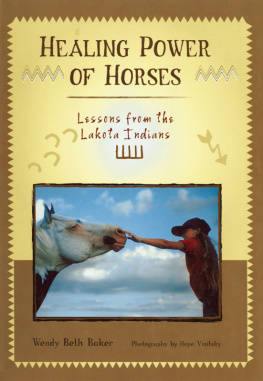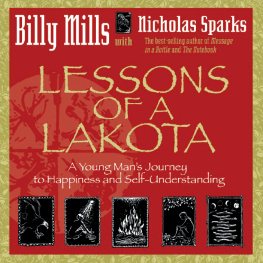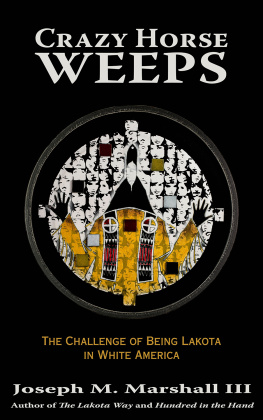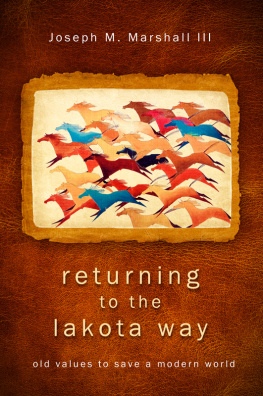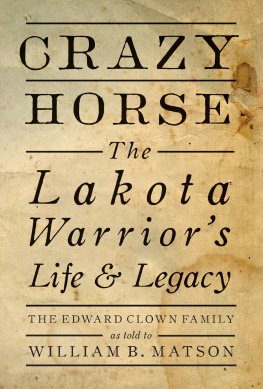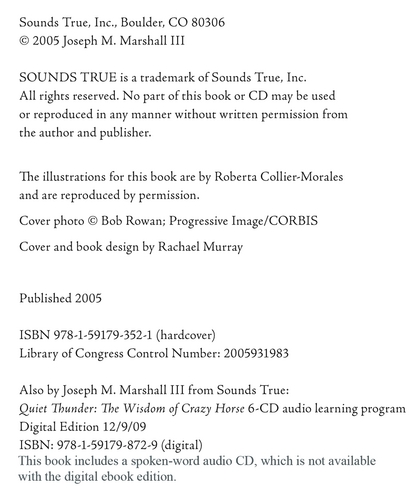The Greatest of the Greatest: A Treatise on Wisdom
Toss a pebble into a pond and the waves flow outward in ever-growing circles. That is a physical reality.
In the Lakota encampments of old, the biggest and tallest lodge stood in the very center of the encampment. There the elders met.
The oldest men in the village formed the council of elders. There was one basic requirement: Obviously, one had to be old.
Try to imagine the number of years of experience represented by the village council. Depending on the size of the village, this could vary from hundreds to thousands of years. Yet, the council had no authority. As a matter of fact, there really is no word for authority in the Lakota language. So, how did the council of elders fulfill its responsibility?
The council of elders fulfilled its responsibility through the power of the influence of their wisdom.
Various matters of concern and importance were brought to the councilfrom everyday life issues to matters of war. Every issue was discussed at length, sometimes for several days and nights. At the end, the council didnt issue ultimatums or edicts. They simply informed the people what they thought. That opinion, or opinions, was the basis for action because of the depth of the councils wisdom.
The Lakota consider fortitude, generosity, bravery, and wisdom to be the four greatest virtues. In any discussion or mention of these virtues, wisdom is invariably the last to be named. However intentional or unintentional that may be, it is entirely appropriate because wisdom is not only the greatest of the four greatest, it is also the most difficult to achieve. Furthermore, wisdom is associated with old age, and that, too, is entirely appropriate because wisdom cannot be had in ten easy lessons. One has to live a long life to gain wisdom, and it is regarded as lifes gift by some who finally achieve it. It is, many also realize, a gift they cannot keep to themselves. It must be given back to life.
What, then, is wisdom?
Just as knowledge is derived from information, wisdom begins with knowledge, grows with experience, and is empowered by discernment.
On the other hand, wisdom is one of those realities of life that is best perceived by the effect it has, like the wind. Wind cannot be seen, but its movement is visible when an entire hillside of grass bends in the same direction. It cannot be touched, but anyone who feels it stir on a hot day can feel the relief it brings. Wind does not speak, but it can give whispery voice to the branches of a red cedar tree. Therefore, we know wind exists. Hence, we know wisdom exists. We know it is an ancient virtue, but at times it seems difficult to see its effect on our society and our world. Sometimes its absence seems more evident.
Someone said, The greatest arrogance of the present is to forget the intelligence of the past. The author of that statement obviously understood that we contemporary humans, especially in American society, think that all that matters is the present. We forget, or just plain dont know, how we got where we are today, intellectually, morally, philosophically, and technologically. We live in a world that moves at cyber speed, craves instant gratification, and revels in technology. Consequently, we are so impressed with the current version of ourselves that we arent aware that our ancestors contributed to what we are and what we do and how we think. For example, as we ride in our sedans and SUVs, some of us may have some inkling that automobiles were invented within the past 120 years. But fewer of us probably know that the wheel was invented hundreds of years before that. Fewer still would realize that the wheel enabled the invention of carts, wagons, buggies, and other wheeled conveyances that are the forerunners of our automobiles.
Astonishingly, there is a mind-set that technology of the past was crude and imprecise. Those who think so would be startled to discover that modern-day surveyors have learned that mind-set to be a fallacy. A few years ago, survey coordinates done in the days of George Washington were checked by surveyors using satellite-aided global positioning instruments. They were surprised to learn that the surveyors of the mid-1700s were off in their measurementswhen they were off at allby no more than six inches.
If we sometimes disdain the mechanical or technological abilities of our ancestors, we also have a tendency to turn up our noses at their beliefs and philosophies, describing them as quaint or archaic. The spiritual views of some northern Plains tribes in regard to death serving life are a case in point.
Many primitive cultures all over the world believe that death separates the spirit (or the soul) from the body and that the spirit and the body each serve a different purpose thereafter. Among many indigenous societies in North America, a special ceremony was usually conducted to release the spirit of a person who died so it could go on to the next life. In the meantime, burial practices enabled the body to return to the Earth, practically speaking.
Among the tribes of the northern Plains, the deceased was enclosed in a hide and placed atop a wooden scaffold (a platform supported by poles) or sometimes in a large tree. After several years, when it was obvious that the body had shrunk inside the hide encasement from decomposition, it was taken down and buried in the ground. Thereafter, the process of decomposition was completed, and the remains became part of the Earth. We now know, biologically, that organic material is reduced to basic componentssuch as carbonas decomposition occurs, and these compounds become nutrients on which new plant life feeds. The quaint and archaic belief of death serving life is a reality.
Modern technology and the astounding tasks that gadgets can perform have effectively blinded us to the intelligence of our ancestors. Weve become arrogant as a society and as a nation. And if we look with disdain on one aspect of the past, we have a strong tendency to assume that our ancestors were somehow lacking across the board. We then characterize everything about the past as quaint and archaic, and we forget the value and power of wisdom. Of all the mistakes we could make, that is arguably the worst.
And if anything in our society should be synonymous with wisdom, it should unequivocally be leadership.
Here, once again, the intelligence of the past offers some insights and perhaps some lessons as well, depending on how arrogant and self-absorbed we are.
Up to the reservation era, wisdom was an inherent part of the leadership in Lakota society. Wisdom was more important than authority. As a matter of fact, there was no authority. As another matter of fact, there was no concept of authority.
Euro-American thinking forces non-Indians to assume that without law and order, societies cannot be governed. Contrary to such assumptions, indigenous societies of North America did govern themselves, although there were no written laws or codes or rules as such. Indigenous societies did have expectations and rules for behavior, but just as important, they looked to the wisdom of the elders among them.
Many tribes had a process that had worked for many generations, and some were more structured than others. The Cheyenne, for example, had (and still have) the Council of Forty-Four. For most tribes, however, the hierarchy of government was informal, and at the corein terms of influencewas usually a council of elderly men. In Lakota, they were called, as a group,


